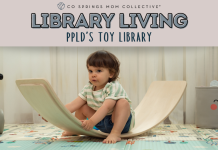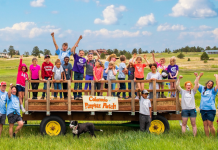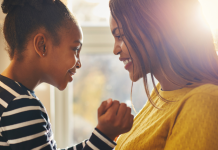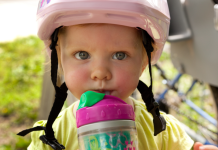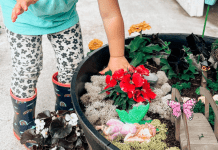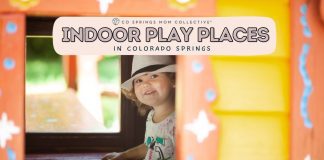 I don’t know a single parent who doesn’t want the best for their child’s social development. We read books and blogs and consult friends for advice. We are constantly coordinating playdates, park meet-ups and birthday parties. There’s no doubt about it: We value social skills! Why are they so important? Because I think deep down, we feel our children will lead more fulfilling lives if they have deep. authentic relationships with others, and we’re probably right.
I don’t know a single parent who doesn’t want the best for their child’s social development. We read books and blogs and consult friends for advice. We are constantly coordinating playdates, park meet-ups and birthday parties. There’s no doubt about it: We value social skills! Why are they so important? Because I think deep down, we feel our children will lead more fulfilling lives if they have deep. authentic relationships with others, and we’re probably right.
But somewhere between jobs, school, laundry, cooking, budgets and lacrosse sticks, we parents have lost some basic social skills ourselves. Since kids learn best by example, here are five ways we can model great communication:
1. Manners Matter
From an early age, we brainwash our kids to say “Please” and “thank you.” As I type, my 6 year old is writing a thank you card for a gift he received. I’m already coaching my 16 month old to say “please” anytime he is motioning for a snack. We all know how important it is to teach these simple expressions of good manners.
However, how often do we ask something of our spouse and leave out these crucial words? We are comfortable within our own families, and unfortunately these are the very people with whom we forget our manners. If kids hear “please” and “thank you” around their house all the time, they are going to be much more likely to use those words when asking for a turn on their neighbor friend’s bike ramp. And even kids appreciate hearing these simple little words.
And while we’re on the topic of manners, we grown-ups need to work on not interrupting. We don’t like it when our kids do it, so we probably shouldn’t, either.
2. Speaking Kindly
How often are we asking our kids to do things in the same demanding tone we tell them not to take with us?
As a parent, frustrations build, responsibilities pile up, and it all feels like too much sometimes. So when your little man leaves 400 LEGO pieces strewn about the kitchen floor, we yell “Clean this up RIGHT NOW!!!!” as our blood boils. The thing is, a little kindness in our delivery goes a long way. We can model this for our kids by taking a deep breath, and asking more gently yet firmly, “Luke, you know this isn’t where these belong. Please clean them up right away.” They might just be a little more likely to speak kindly to a friend that accidentally wrecked their art project if they just recently watched their mom, who they knew was rightfully frustrated about something, take a deep breath and still speak kindly.
Disclaimer: I’m not saying our kids should never see us be (and act) angry. They should sometimes. It’s healthy. But that’s another blog post. 😉
3. Sharing
Sharing is one of the earliest skills we start working on with our kids.
As soon as they are able to sit up, we are applauding them when they allow another child to play with a highly desirable toy. We are showing them how to give a turn and then take a turn. The importance of sharing only increases with age. If we want kids to value people over things, we must do the same thing in our own lives. We might be holding tight to material things or more elusive things like time or energy. If we are generous with what we have, our kids will be, too.
This will look different for each of us, so I’m going to just leave this right here.
4. Apologizing when needed
We are going to make mistakes. Our kids will make mistakes with their friends. But a heartfelt apology is gold.
If I totally unload my stress onto my kids and act accordingly, an apology is in order. If my daughter rips a doll out of her friend’s hand and in the process knocks her over, she must say she’s sorry. And if she was just on the receiving end of a sincere apology from her mom or dad, she’s just going to be more familiar with how to do it. We need to show our kids that if they’ve messed up, they need to acknowledge it to their friend, the same way we do at home.
5. Active Listening
Learning to listen is not an easy task.
I still find it challenging at times, and I can’t just blame it on my enneagram type. I’m not talking about powering through Transformers tangent #84 for the day when it’s wine o’clock and the kids should be in bed. What I’m talking about is really listening to the things they’re saying to you. I’m talking about not asking the question until you’re ready to receive the answer.
If our kids learn from us how to listen to something someone else is telling them, make eye contact with them to show they’re listening, and maybe even ask a few follow-up questions to make sure they understand and to express their interest, think of the impact this could have on their future relationships!
Some days, I fail miserably at the list above (and I mean, miserably). Other days, I do alright. All days, I’m beyond grateful that kids are so forgiving and love us even when we botch this whole parenting thing up. The best part is, when we do, we get to try all over again the next day!
♥♥♥
If you enjoyed this post, read more from our Words with Kids series here.


